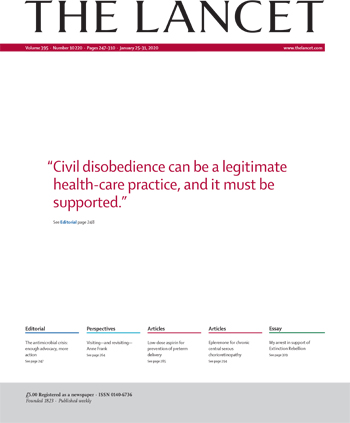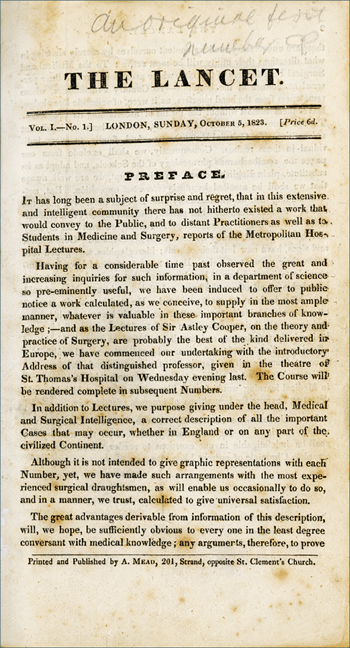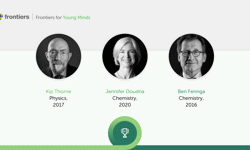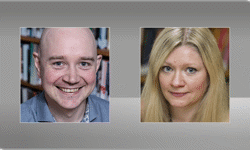
When Thomas Wakley founded The Lancet medical journal in 1823, the surgeon had two purposes in mind – to provide new medical knowledge to doctors and campaign against nepotism and corruption in the medical profession.
Wakley went on to become a reforming coroner and a radical MP for Finsbury.
It is that dual purpose, science and political controversy, that informs the mission of the 12th editor-in-chief of the world famous weekly medical journal, Dr Richard Horton, to this day.
“It’s a mistake to believe that medicine or science is apolitical. You can’t strip politics out of anything in life. How much money you spend on the National Health Service is a political issue,” says Horton who practiced medicine for only a few years after qualifying before spending 30 years at The Lancet.
“Rather than run away from politics, I think we should be embracing it and getting stuck into the political debate,” says Horton – most recently over Covid-19 the worst global pandemic since the flu pandemic of 1918.

I think it is one of the most appalling political acts I have seen in my lifetime.
Straight talking
There has been no doubt whatever that Horton has got “stuck into” the debate, and like his illustrious predecessor who was a friend of Charles Dickens, the current Lancet editor does not mince his words.
Horton has called the decision by President Donald Trump to withdraw American funds from the World Health Organisation “a crime against humanity,” a view that was not universally popular with his many American readers.
The Lancet editor concedes his comment is a strong one but believes when you think through the logic, it cannot be called anything else.
The WHO exists to protect the health and wellbeing of the world’s population, particularly some of the poorest and most vulnerable in the world.
“If you have a political attack on an organisation whose primary responsibility is the health of the civilian population, for me that is a crime against humanity. I think it is one of the most appalling political acts I have seen in my lifetime,” says Horton.
The Lancet editor believes the journal could have been created for a crisis such as this – to provide reliable information in the midst of a global health emergency while trying to ask questions about what politicians are, or are not, doing.
I think that is the greatest science policy failure of a generation.
Wasted time
Above all else, Richard Horton right now is angry – and not just about how President Trump has treated the WHO.
“I am angry that we wasted four or five weeks in February and early March. I’m angry about the absolutely national scandal that we have created as a result of wasting that time. I think that is the greatest science policy failure of a generation. There are a lot of things to be angry about,” says the 58-year-old Horton.
While Prime Minister Boris Johnson was seriously ill with the coronavirus, Horton choose his words carefully – that it was a tragedy to have “a non-serious person leading the country at a very serious moment in its history”.
Once Johnson was back in Downing Street again, the Lancet editor let rip and called for the resignation not just of the Prime Minister but also Health Secretary Matt Hancock.
Richard Horton’s anger stems back to January this year when The Lancet received its first scientific reports from China where the publication has been involved for fifteen years and has good contacts with both Chinese medical academics and the Chinese Ministry of Health.
On January 24th, The Lancet published two papers from China, one describing the nature of the disease and the other was first to describe person-to-person transmission.
“The paper on the nature of the disease really tells you the whole story we are going through in the UK today; that is why I am so angry about the government’s response and how some of the senior scientists have responded too,” says Horton.
That first paper warned of the “pandemic potential” of the virus, the fact there was no treatment, told how patients were being admitted to intensive care and there was also a discussion about the importance of personal protective equipment (PPE).
“It’s all here, the government cannot say they didn’t know about PPE,” Horton adds.
The next day, the government emergency COBRA committee met and decided that the risk to the UK was low.
The technical papers in The Lancet are clearly not aimed at politicians but Horton says he does not know why such warnings were apparently not picked up by scientific advisers.
We have published more on the science of this than anybody else and no-one has been in touch to ask for any view or assistance.
Spin doctors
The Lancet editor calls it “the death of independent scientific advice” and believes there has subsequently been a rewriting of history.
“It is a Kremlinesque disinformation campaign by the government and it is aiming to airbrush out the fact that nothing was done the whole of February and early March despite the fact that all the evidence is there from the last week of January and we have to resist that disinformation,” Horton insists.
The Lancet has now published more than 400 Covid-related items since January a lot of them the very latest peer-reviewed research papers but no-one from the government has been in touch.
Only two politicians have picked up the phone – former Health Secretary Jeremy Hunt who now chairs the House of Commons Health Select Committee and Labour’s Shadow Health Secretary Jonathan Ashworth.
“We have published more on the science of this than anybody else and no-one has been in touch to ask for any view or assistance. Nothing. No-one’s interested and we are a British institution actually here in London,” Horton explains.
By any standards, The Lancet, owned by professional publishers Elsevier, is a remarkable institution second only to the New England Journal of Medicine in terms of citations.
The core business flows from its 29,000 subscribers, 88 per cent of them medically qualified, but it also takes advertising and sells reprints of its papers in any language. There is also a raft of specialist sister editions devoted to everything from oncology to neurology.
Although Richard Horton says he loves the print edition, most readers access the journal online and there are more than 1.8 million registered users of thelancet.com.
But why did Horton choose medical journalism for his main career over actually practicing medicine?
“My three loves were medicine, writing and politics so The Lancet was the perfect place to end up – all three combined,” he explains.
All three come together in his trenchant editorials.
One at the end of March explained how February should have been used to expand coronavirus testing capacity, ensuring the distribution of WHO standard PPE equipment and establishing training programmes and guidelines to protect NHS staff. None of that happened he claimed.
“The result has been chaos and panic across the NHS. Patients will die unnecessarily. NHS staff will die unnecessarily. It is indeed, as one health worker wrote last week ‘a national scandal.’ The gravity of that scandal has yet to be understood,” Horton wrote at the time.
But what should happen now?
The government should be particularly careful about reopening schools too early.
Don’t rush the exit
A serious public debate should have begun by the end of April on what shape a future phased return to “normality” would look like.
Once the process begins, it could take up to two months to get most people back to work.
“I don’t think we will return to normal for a long time, until we have a vaccine. People are genuinely frightened by the worldwide nature of this pandemic,” says Horton.
He adds that the government should be particularly careful about reopening schools too early because of the danger of children passing on the virus to adults and their teachers even though they themselves have weak symptoms.
“It’s not the first place to start unless you test every single schoolchild and every single teacher every single week,” Horton emphasises.
The editor-in-chief of The Lancet is very familiar with controversy. He was embroiled in the great MMR-autism scandal when The Lancet published a peer-reviewed paper in 1998 on research led by a former colleague, Andrew Wakefield, subsequently discredited and struck-off from the medical register.
After a huge row, the paper alleging links between the children’s vaccine and autism was withdrawn.
Wakefield had been a respected doctor at the Royal Free Hospital but according to Horton, what no-one knew was that he was not only a maverick, but someone so obsessed by one particular idea “that he departed from every scientific principle known to humankind to peddle his theory”.
One of the lessons Horton took from the issue was the importance of scientists engaging in public debate. Wakefield was all over TV and in the glossy Sunday magazines but many scientists took what Horton now believes was the wrong decision, to try to avoid giving him the oxygen of publicity.
With Covid-19, “it’s really important that scientists take part in public debate, and some are and some aren’t, but we need to be engaged because literally the lives of our fellow citizens are dependent upon it.”
There will be another one. It’s guaranteed. It’s what viruses do.
Learning the lessons
Horton is emphatic that we must get the Covid-19 story written and get the historic story correct because this virus is not going away fast.
“We should have been prepared for it and we had all the signals to be prepared for it and that is why I’m angry because we failed,” says Richard Horton.
The editor-in-chief is not just angry but insistent that all the necessary lessons are learned “because there will be another one. It’s guaranteed. It’s what viruses do.”
If it’s not SARS or another coronavirus, it will be an influenza epidemic or something else.
“Viruses are everywhere and the number one clear and present danger to the human population of the UK is an infectious pandemic,” says Dr Richard Horton, editor-in-chief of The Lancet who hopes that at least next time, Britain will be better prepared.

This article will also be published in the May / June issue of InPublishing magazine. If you would like to be added to the free mailing list, please register here.












